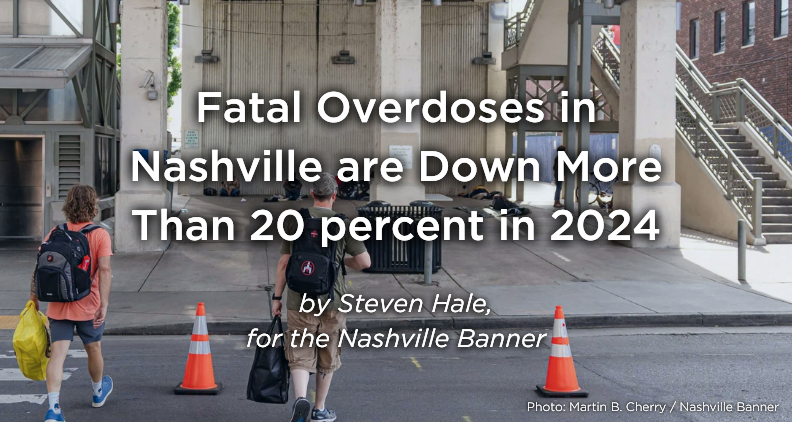SMART’s Middle Tennessee Substance Use Response Consultant, Trevor Henderson, provides some key insight into what we are seeing with overdose trends. See below and read the full article for all pertinent information.
“Still, the new data provides grounds for cautious optimism about turning the tide of a crisis that has killed thousands of Nashvillians over the past five years. Trevor Henderson, the former director of Metro Public Health’s Overdose Response Program who is now working as a substance use response consultant with the University of Tennessee’s SMART Initiative, told the Banner the positive trend isn’t unique to Nashville.
“We’ve noticed in other parts of the state, and in other states as well, there seems to be a reduction going on in and around 20 to 25 percent,” he said.
While emphasizing that any theory about contributing factors is tentative, Henderson said he and others working in the area suspect that the increased availability of naloxone is a significant one. In Nashville, advocates have had success this year expanding access to the opioid overdose reversal drug, getting kits installed in downtown bars and distributing them to the unhoused population.
But they also continually face new challenges. Along with new fentanyl analogs, 2024 has seen the sudden rise of a new substance, a non-opioid tranquilizer called xylazine. Meant for horses and cattle, the drug can cause open flesh wounds and stop a person’s breathing. The second quarter Metro Health report notes that so far this year “xylazine detections increased by 83 percent compared to the same time period in 2023.”
Signs that the pace of fatal overdoses is slowing are obviously positive, Henderson said, but they don’t represent complete success in the fight against the crisis.
“Naloxone hasn’t fixed our problem,” he said. “It’s saving lives, but it hasn’t cured addiction. It hasn’t taken fentanyl off the street [or] xylazine off the street. The danger is still there.”

